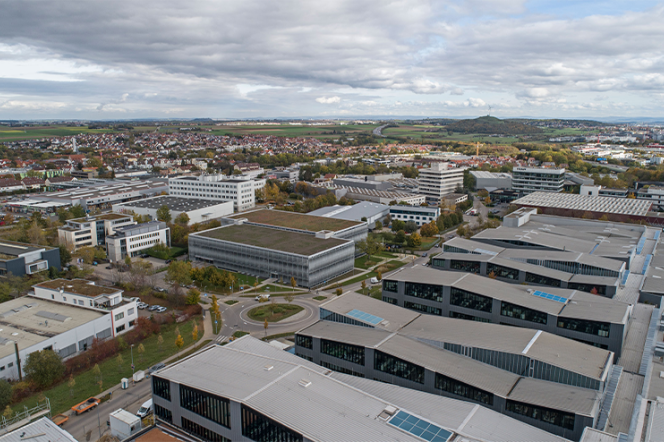Date added: 2025-10-31
Lecture: Productive City

The Department of Advanced Urbanism at the Faculty of Architecture, Gdańsk University of Technology, is conducting a Joint Design Studio this semester titled “Gdańsk Waterfront Productive City”, in collaboration with the Department of Urban Design, Faculty of Urban and Regional Planning (FURP), Cairo University.
This international design studio is carried out as part of the course “Shaping and Transformation of Urban Structures” in the second semester of the Urbanism specialization within the Master’s programme in Spatial Management (English track).
The design classes are accompanied by discussions on the concept of the Productive City, featuring contributions from invited external experts.
This week, an open lecture will be delivered by Andreas Hofer, representative of the IBA’27 initiative implemented by the Stuttgart Region, Germany.
The lecture will be held online on Tuesday, November 4, at 4:00 PM.
On Productive City
Digital transformation, robotbased manufacturing and new concepts for mobility are changing products and production methods in the Stuttgart Region. This allows for new vertically integrated factory concepts and their proximity to noisesensitive uses, such as housing or education. For many areas in the region, this provides an opportunity to reinvent themselves. Production can return to the city, and industrial areas become urban building blocks. Smallscale urban farming provides the city with highquality food, has a moderating effect on the climate and increases biodiversity.
This new productive mix can transform what are currently bland industrial zones and purely residential areas into mixeduse, vibrant and creative urban neighbourhoods. But the return of production goes far beyond mixed use in the European city. It not only takes place on a small scale on ground floors and in backyards but also takes the factory as an equal urban building block.
This paradigm shift has far-reaching consequences for the structure of the city. There are many ways in which planning law and investor logic has not yet caught up with these new forms. An IBA is the right format to initiate change. Several projects in the Stuttgart Region want to attempt to do this with IBA’27.
Andreas Hofer was born in Lucerne. He studied architecture at the Swiss Institute for Technology in Zurich. In 2018 he was elected as director for the International Building Exhibition in Stuttgart (Internationale Bauausstellung 2027 StadtRegion Stuttgart). In Zurich he was partner in the planning and architectural office Archipel. He mainly worked as a consultant and project developer for innovative cooperative housing projects as Kraftwerk1 and mehr als wohnen (more than housing). Andreas Hofer wrights regularly about city development and housing issues, is a member in juries of architectural competitions and lectures at universities.



